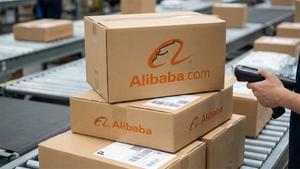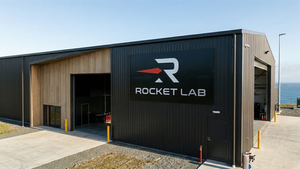Cushman & Wakefield (NYSE: CWK), a leading global real estate services firm, released a comprehensive study titled “Office of the Future Revisited.” The study reports on employees’ thoughts on returning to work; the need for flexible office workspaces; and increased demand for space in office-using industries. The report is based on Cushman & Wakefield analysis of industry leasing data, surveys conducted by Cushman & Wakefield since the onset of the pandemic, and various other sources.
“This report aligns with a couple of key industry trends,” said David Smith, Global Head of Occupier Insights at Cushman & Wakefield and co-author of the report. “First, the majority of global office workers prefer a hybrid working arrangement, and many companies that have made decisions are currently planning on hybrid, agile work environments. More are expected to go in this direction as leases expire. Second, despite the work-from-home rhetoric, market data shows office leasing volumes are surging back, up 41% in the U.S. on a 12-month trailing basis compared to a year ago. To a degree, we believe the hybrid solution is galvanizing the corporate need for office space as the workplace gets reimagined.”
The report also showcases other trends, including industries and geographic areas that have been experiencing growth. Overall, post-pandemic job growth has fared better in industry sectors with jobs that tend to be office-based, such as tech and finance jobs, compared to other sectors of the economy.
The report predicts that the companies that thrive will be the ones that provide employees the choice of where to work. That could require businesses to walk a fine line. While many want to have a remote-work option, Cushman & Wakefield data indicates that employees need the office to support their desire to learn, make meaningful cultural connections to their organizations, and to engage more deeply with colleagues. Cushman & Wakefield’s Experience per Square Foot™ (XSF) survey data shows many employees rate in-office experiences higher than remote work, and the workers who have the most meaningful experiences are the ones who come into the office multiple days a week. Specifically, Millennial and Gen Z workers are more likely than other workers to report a positive employee experience when they frequent the office three to four days a week, the survey found.
“To compete for talent in an environment largely featuring labor shortages, corporate leaders will need to create office environments that inspire employees and draw them in,” said Despina Katsikakis, Global Head of Occupier Business Performance and co-author of the report. “Creating a comfortable workspace that attracts and engages will have to blend home and office environments. Companies should account for physical space, technology, the workplace experience, human and automated interactions, change management and communication strategies, and integrated delivery across the workforce in various locations—in-office, at home and at flexible office locations.”
The purpose of offices is evolving as well as in-demand employees and hybrid work shape the future of workplaces. A survey of real estate executives conducted by Cushman & Wakefield in collaboration with CoreNet Global found 70% of respondents identified the office as the center of creativity and innovation and the best place to build company culture.
Office Space Demand
While the shift to hybrid is occurring, Cushman & Wakefield research shows the demand for office space is starting to return to pre-pandemic levels. Based on the 90 U.S. markets tracked at Cushman & Wakefield, 4-quarter rolling total leasing activity was up 41% year-over-year in Q1 2022. In several cities—including Austin, Seattle and San Francisco—leasing activity doubled.
The report states that in many countries, industries that are largely office-based are already back to Q1 2020 levels, while U.S. office employment is expected to grow 50% faster than total employment by the end of 2030 and high-tech jobs are forecasted to grow twice as much.
The Workplace of the Future
The report details six different examples of organizations’ approaches to hybrid work models, with varying degrees of success. Cushman & Wakefield believes that employers that want to thrive must balance a workplace that inspires and motivates employees while improving connectivity among and communication with an agile workforce, ensuring there are opportunities for remote work.
“Companies need to have the right real estate in the right locations with the right experience. It’s a business challenge that requires an integrated approach from real estate, human resources, finance, and technology leadership. No longer can these departments work independently; rather, they need to work cooperatively as the organization defines brand, builds culture, develops and refines HR policies, and creates reputation capital,” said Katsikakis.
The full report can be found here.
About Cushman & Wakefield
Cushman & Wakefield (NYSE: CWK) is a leading global real estate services firm that delivers exceptional value for real estate occupiers and owners. Cushman & Wakefield is among the largest real estate services firms with approximately 50,000 employees in over 400 offices and 60 countries. In 2021, the firm had revenue of $9.4 billion across core services of property, facilities and project management, leasing, capital markets, valuation and other services. To learn more, visit www.cushmanwakefield.com or follow @CushWake on Twitter.
View source version on businesswire.com: https://www.businesswire.com/news/home/20220428006240/en/
Cushman & Wakefield Releases More Data Confirming Hybrid Office is Becoming the New Norm
Contacts
Mike Boonshoft
212-841-7505
michael.boonshoft@cushwake.com




